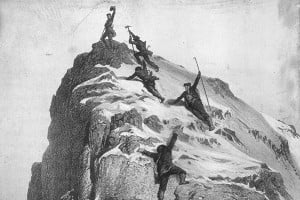
John Postlethwaite shapes a collection of 'jottings' into an essay on movement, meaning and the words we use to describe climbing experiences and its merits as an activity.
The core of this piece, my 'jottings' as I call them, have been lying around on my computer for well over a year now. Given that I suddenly have plenty of time on my hands I thought it might be useful to dust them off and see if I could finally knock them into shape. To say that the world has changed since I first put pen to paper is an understatement. Indeed some things, like Brexit and the referendum, now seem almost forgotten, but while the context has radically shifted the words feel as resonant as ever.
So here goes. Past and present together.
I love climbing; it captivates me. It gives me great pleasure; the fun of getting out and the satisfaction of achievement. But in the grand scheme of things I know that it is no more than hanging onto rock and not that important, especially not today.
So why is something so trivial so important to me?
Reflecting on this paradox has always been part of the pleasure. It speaks to the way in which climbing gets under the skin; how it connects with deeper issues relating to identity and purpose.
But over the last few years my interest in this apparent contradiction has intensified, peaking at a whole new level.
In the first place, it can be tracked back to the Brexit moment and the day of the vote in 2015. Amongst other things, I felt the need to take stock and think carefully about my priorities. Reflecting on my contribution to the world, it was time for me to put the trivial into context and ensure that I actively engaged with the important. The referendum result worried me profoundly; the story it told about our collective mindset, what it suggested about the future and what it told me about the real losers. It was enormous, the feeling of powerlessness and the desperate need to do something. It made me think hard about what I must do to make the best use of my time. It immediately and powerfully impressed on me the necessity of not wasting time on the ephemeral. Unsurprisingly, this personal stock take invited searching questions about the utility of time spent dangling on ropes.
On top of this, I have been faced with the much more profound challenge of coming to terms with the loss of my son Liam. Unlike me, Liam was a magnificent climber, but like me he was deeply interested in the connection between climbing and the 'outside world'. Indeed we shared many a conversation about the relevance of climbing to the 'everyday', how climbing is both swept along by and occasionally diverts wider currents.
Unsurprisingly, this combined challenge of trying to cope with the loss of Liam and the 'Brexit moment' has intensified my thinking about what matters and where climbing fits.
This is not new thinking, it's just entered my personal dialogue with a greater sense of urgency of late.
What is more, I fully recognise that I am not alone here. My context may be my own, but I am far from the first and definitely won't be the last to wrestle with this conundrum. I certainly don't profess to any special insight.
With this said, a handy place to start for me is the centrality of movement. When I think about movement, I immediately think of Johnny Dawes who, at his best, talks so eloquently about the art of movement. Leaving aside his penchant for over statement and an apparent 'stuckness' with an Indian from the eighties, I think that Johnny is one of the best at articulating the experience of being in harmony with the rock. To say how it is, to be able to tune into the strata and move with a geological tempo. Indeed his talk resonates powerfully with what I felt when I watched Liam climb. Watched him just go with the flow. To see him dial in and set his clock to rock time.
Movement also conjures an image of a coming together; of a gathering or a community. To my eyes, there is no denying that climbing presents itself as a movement. It may be a quarrelsome movement and the ties can be tenuous, but it is undeniably a movement. Not only this, it tends to portray itself as a progressive movement; one rooted in a higher purpose. A shared commitment to escape the humdrum. Pushing at the boundaries and searching beyond. A common purpose with a certain cachet, even if it is simply the satisfaction of refusing to conform.
At the same time, this feature of climbing draws me towards another altogether more imposing aspect. That view of movement as progress. Movement as in going forward; as in progression. The face of climbing which leads me back to my core question: is it central or ephemeral?
While rhythm and tempo speak to what I experience when I am on the rock, this facet of movement directs me towards why I am at the crag in the first place and helps me formulate what I take away at the end of the day. Indeed I would hazard a guess that this movement as progress construct influences a lot of experience; in terms of our approach to learning as well as the humdrum of daily life. Personally, I think it goes to the heart of the meaning-making process : how we make sense of what we do, what this says about us as individuals and speaks to us as a community.
Without stating the obvious, the recent past has been anything but humdrum and I have certainly been engaged in serious meaning-making. However, I must say that grappling with this core construct of movement as progress has had wider ramifications beyond my climbing. For me, it has connected with more pressing issues relating to loss, grief and purpose. Indeed, the interplay between my climbing and my grief has been a great source of nourishment.
When Liam died, despite the associations, I knew I just had to try and carry on. Intimately, I knew how important his climbing was. Way beyond the point of satisfaction, it was profoundly important to his whole well being. Yet he had a constant struggle to free himself from the shackles of performance-based achievement. But free himself he did. Not all the time, that's not real. And so the times I saw him climb on another level were as precious as our conversations about his whole approach. Conversations I knew I must continue.
The immediate challenge was how to talk. For a start, when confronted by this grade of problem, words like success and failure instantly sound hollow. Even the word loss falls flat. Liam wasn't lost. We hadn't misplaced him. He was gone. Gone in a way that questions the passage of time. Yes the clocks still tick, but rhythm is lost, reason has gone and all forward momentum comes to a sudden, shuddering stop. All certainties vanish. What remains is complete exhaustion and the realisation that life-time does not flow in the way we imagine.
Family and friends are wonderfully supportive. Yet here too words often jar. They don't map across to experience. Being strong or staying strong don't ring true. Shortly after Liam died, my partner wisely observed that if something like this was able to get the better of Liam, then we had to accept that it was a powerful illness. So strong and weak are way off key, it's not some battle. As for process and journey: there is no promised land, no milk and honey.
This impasse with language is unsettling and makes me feel uncomfortable. It would be crass to correct people, not least because my words are lacking. But the jarring and incongruity run counter to my need to be open. They dull my feelings and block my desire to fully embrace the actuality of life-time. Platitudes, half truths and make believe will not do.
Unsurprisingly, this dissatisfaction with words diffuses into my climbing. Climbing is a wonderful tonic, offering the space to recharge batteries. More than this, it has constructed a playground for words; a playground for me. A place where I can stress-test my language, to check out authenticity and fit. Not some imaginary place of discovery, nor some high place of dreams. It has nothing to do with ordering words and resolving the plot. It's just somewhere to go and hang out with words in real time.
I have always felt that climbing is one of the most real things I do. Sometimes, it can be uncluttered in a way that everyday life can never be. What is more, I am starting to grasp how the realism available within climbing can provide me with the space to take words to the edge. Somewhere to fine tune resonance with actuality. A place where trial and error won't cause offence and the worst thing you can do is kid yourself.
I like how the immediacy and the physical presence of climbing can tie me in closer to my reality. I am either on or off; not nearly or close to. Good intentions are one thing; actions are another. A very dear friend, one of Liam's old mates, has been kind enough to let me tag along with him. The gulf in class has not blocked our sharing of memorable days. We share a love for Hodge Close, a gloriously neglected place, which is both near and far at the same time. But more than this, I find slate to be a wonderful medium for testing the integrity of my words. To stand with complete conviction on something that barely exists. To fully commit; not like gargling bleach, but with poise and precision. To stand firm on my words; to stand with a level of clear mindedness that can persist and will map across to the everyday.
Indeed the mapping is very much part of the fun, it adds depth. To be honest and silly though it may sound, it is helping me to grasp the importance of approach. Time and time again I have arrived at the crag full of good intention, clear in my mind that feelings and experience were front and centre. I really did imagine that I was open to the learning. The trouble was, I could not ignore the nagging thought of that one route I just had to get up: the litmus test. All too often this script ran as a subtext throughout the day and acted as editor at the end.
One day in particular sticks in my mind. I had been up to Foredale for an under the radar trip with my daughter Kate. She had taken up climbing again, partly in memory of Liam. I had fond memories of those long and impressive slabs. They took me back to good days with Liam, when we were both starting out. So it felt right to go back. But on the way home, all I could think about was 'the one that got away' and how I had just failed badly on a climb that I had previously got 'so close to'. It really hit home how blinkered I can be; the extent to which my words restrict what I see and, critically, what I miss. To mark that day with the word failure just missed the point.
It would be deeply misleading to suggest that this was the sudden awakening and the turning point; it's not a road that I am on. What it did do, what it helped me to see, was how I needed expand my vocabulary.
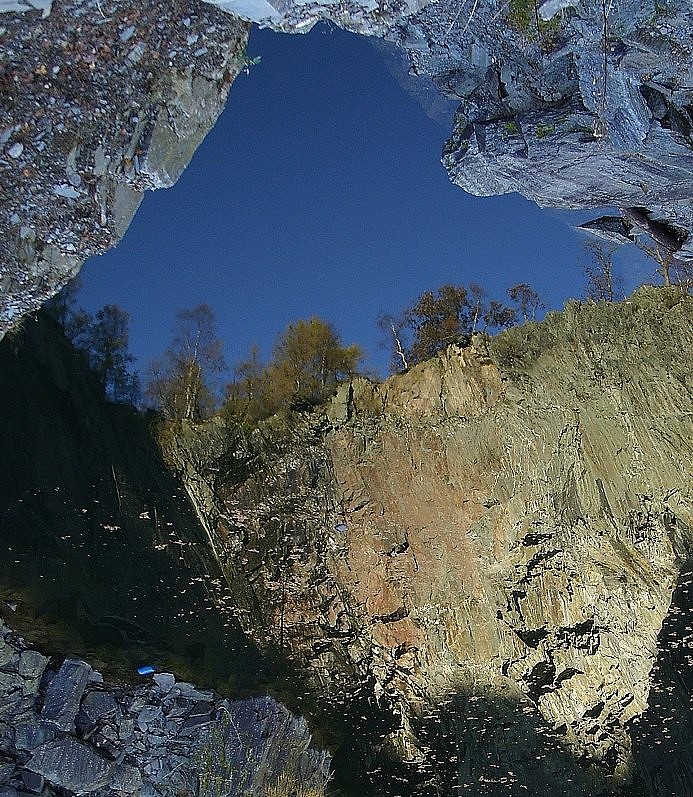
The extent to which my language both on and off the rock has improved is a tale in itself and some partners will attest to my words being merely unrepeatable. As well as this; having said how much I have been stuck for words, I now find myself with too many to say. Acceptance, impermanence, pain and suffering are all welcome additions to my rack; but they will have to wait for another day.
Instead, I will make do with wishing, hoping and mastery, they will suffice and do suggest a good spot to shake out.
Spot is the right word as well. This is not the point of the grand reveal, where all the strands are drawn together, to make sense of it all. It makes no sense. Liam is gone and we must never forget that words rarely mean just one thing. That is the sense of it.
So, let's take a quick scan of mastery, wishing and hoping.
Mastery takes me back to those wider currents which I mentioned at the start. Those streams of time which, whether we like it or not, direct our attention. Standing where I am, it is possible to see mastery in fresh light and begin to make out how it has distorted my whole view. Until recently mastery was no problem, appearing to be a natural part of the landscape. Nothing more than a background feature which barely impacted on the eye. But out of the shadows, its presence is impossible to ignore. More than a distraction it colours my whole approach, tainting what I take with me when I tie in; how I rise to the challenge and how I measure success.
In contrast, from the everyday perspective of grief, I am starting to see what a dull palette this is. What a life limiting stance.
On the sharp end of the rope, I am edging away from a stance built on unyielding force and relentless pressure, unsteadily veering towards one rooted in kindness to self and presence of mind. To be honest, from this angle, mastery is looking more and more like a dodgy placement. A conceit. A trick of the eye that makes it appear as though we have distanced ourselves from nature. That we are above and beyond, attaining such heights that it is entirely possible to be in and out in the same moment. A viewpoint that sees the route of life as some epic struggle, along which the only true measure, is that which comes from pitting ourselves against savage beauty. That this is the way of progress and is our road to redemption.
So maybe; just maybe; even progress may not be quite what it seems? Not all that it is cracked up to be?
But where does that get us to? What about wishing and hoping?
At this point, I would ask that you indulge me. I would like to leave where I started. Liam inspired much of this and I would like him to have the last word - he always did!
Back in 2015, at a time when he had just come through an earlier, tricky episode, Liam asked me to get him a copy of the Rock Warrior's Way; I was the keeper of the Kindle account. I wondered what the hell the book was about, the title seemed preposterous. But there was more to it than I thought and one image will stay with me forever. It is the picture of a climber stuck on the face, just wishing and hoping for better holds. Naturally, the rock, having been there for millennia, is disinclined to move. We are advised to not waste time. Rather than hang around, we are urged to direct our energy and focus our attention onto the actuality of what is there. Not to shrug the shoulders and passively await our fate; nor to rush at it blindly, all guns blazing; but to simply open our eyes and apply considered, focused realism. What a great metaphor and what more do we need to fully commit?

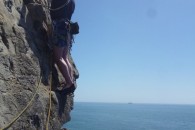

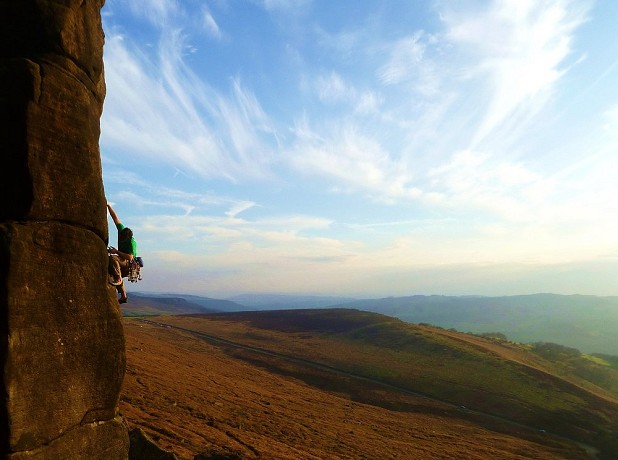
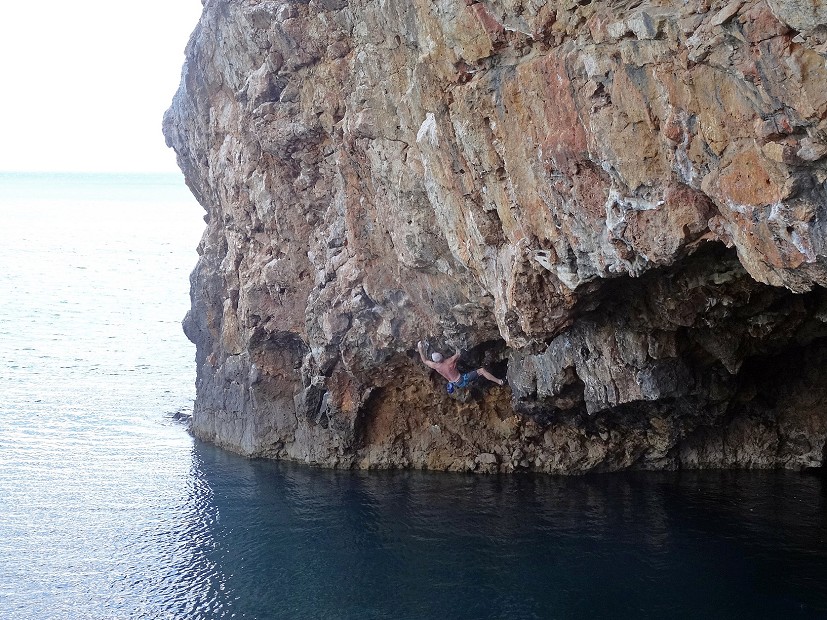
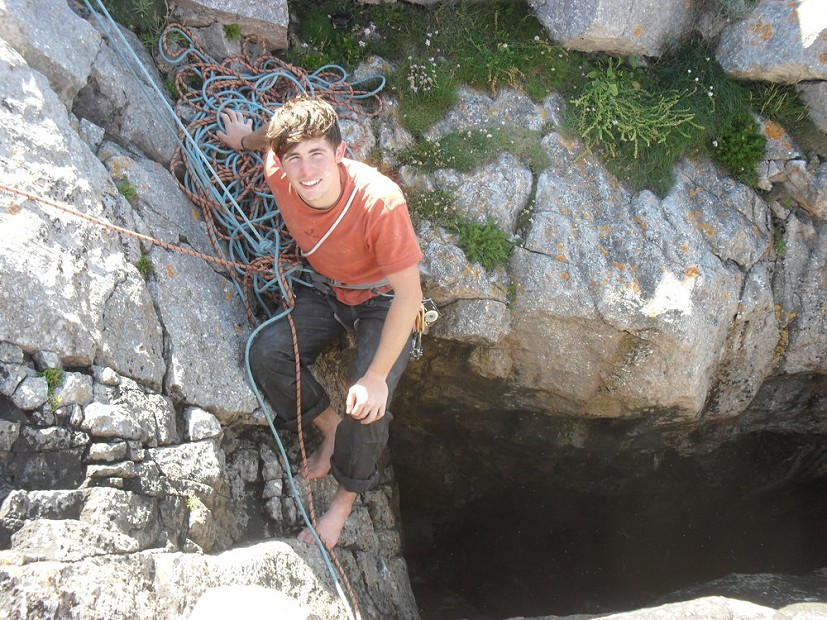
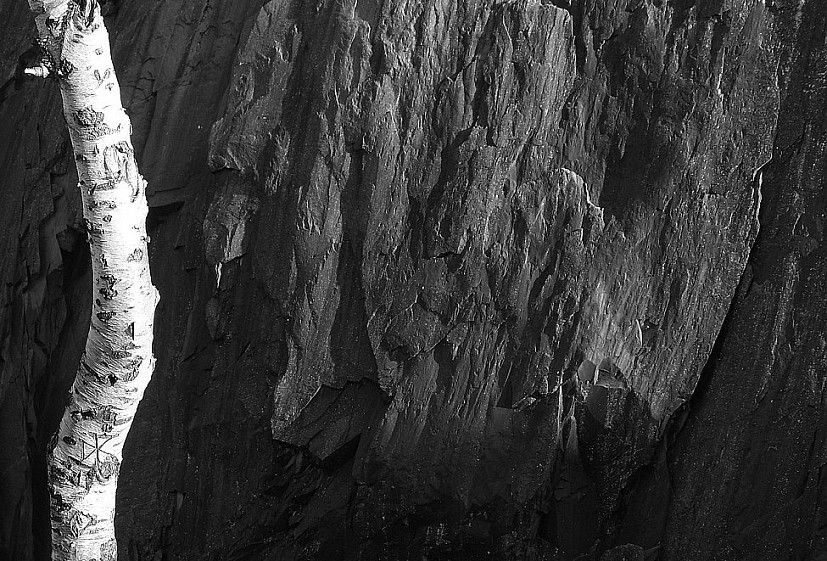
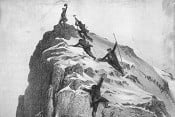
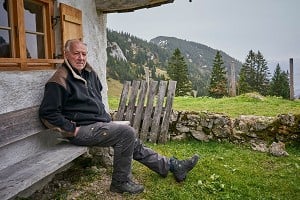
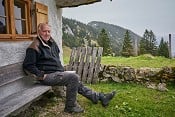
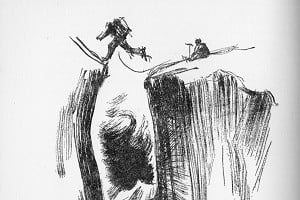
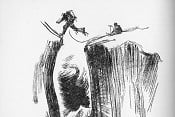
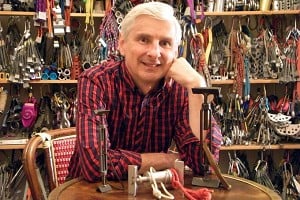







Comments
Could I use your photograph in an article I am writing/we are putting together? Yes, but asking would be nice and cost nothing. This is good manners.
James
Hi James, this one is on me; however the reason I’d used it without dropping you a line was because the following box had been ticked when the image was uploaded - hence I’d figured (rightly or wrongly) that there wouldn’t be a problem.
That was wonderful, John.
I vividly remember Liam "dial in and set his clock to rock time" - it was humbling but a pleasure to watch.
I'll never forget nipping up to the Lakes with him one lunchtime, doing Gimmer String in the afternoon (he cruised the weird crux sequence and I pretended to because I had a top rope), bivvying next to Stickle Tarn and then doing Capella and Golden Slipper on Pavey the next morning. It's hard to imagine being that carefree and innocent now. Great times.
Let's have a pint soon.
Thanks for a truly fantastic article - glancing across profound and relatable topics. Very pleased to be able to read an article of this nature on UKC.
Hahahaha. That’s great to hear Charlie. Liam had long and fond memories of that trip. Good stuff.